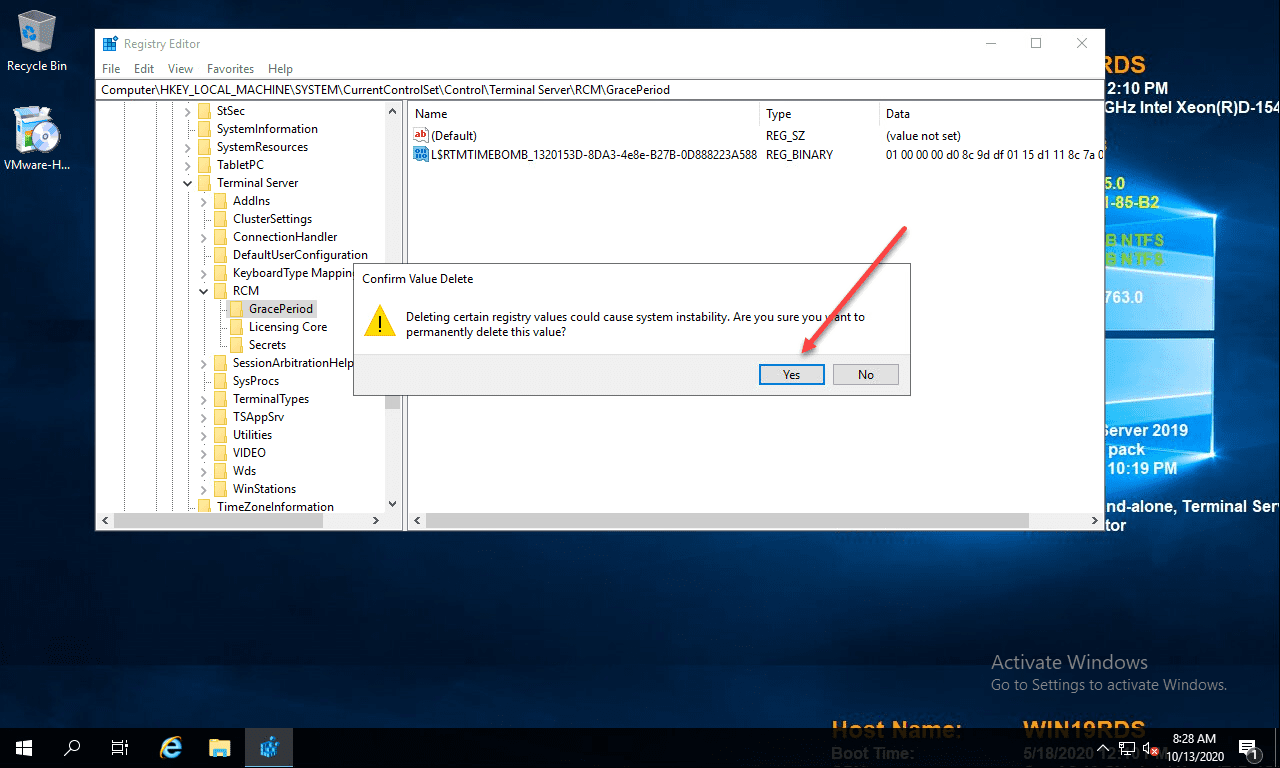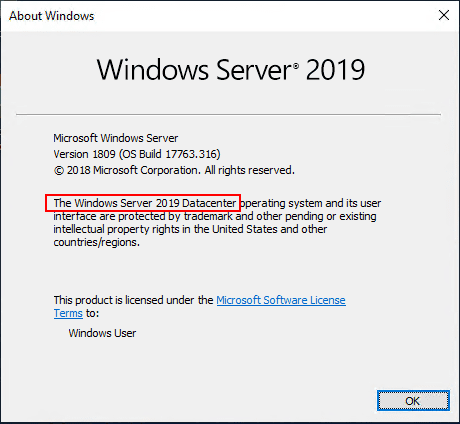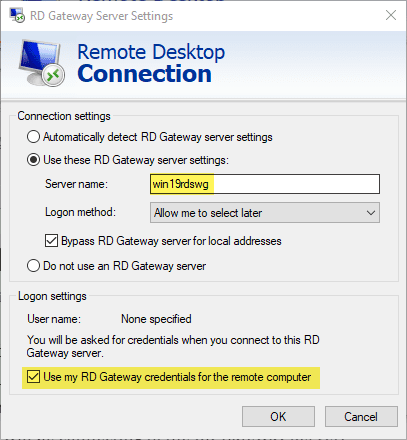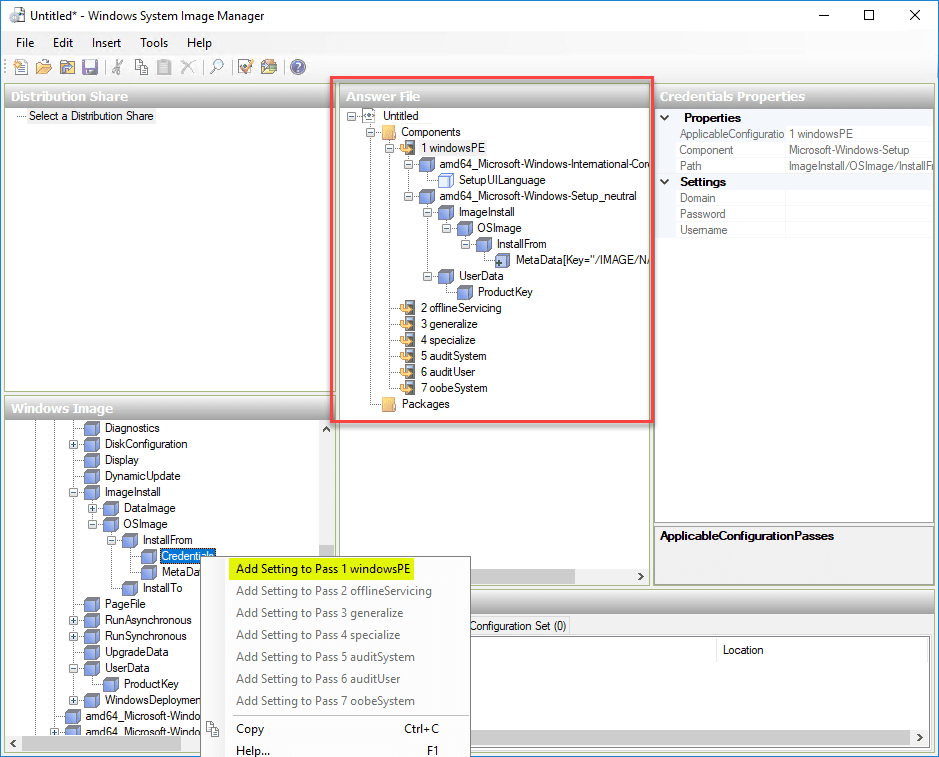Upgrading Windows Server 2016 Domain Controller DC to Windows Server 2019
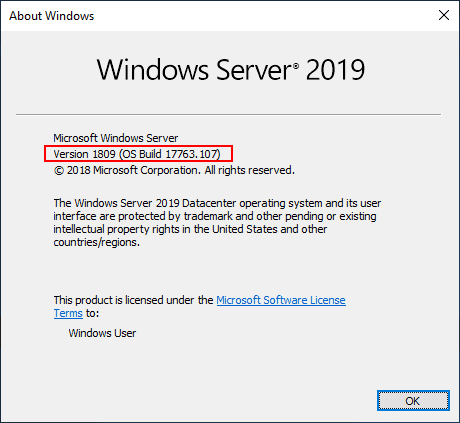
It has certainly been an interesting ride for Microsoft with Windows Server 2019 and the release of their newest Windows Server operating system. Windows Server 2019 was marred with the same issues as Windows 10 1809 and was pulled. However, the latest Windows Server 2019 operating system GA was made available again. I have waiting for a few weeks now before upgrading the home lab environment infrastructure servers to Windows Server 2019. This past weekend, I decided to go ahead and upgrade a few of my infrastructure servers from Windows Server 2016 up to Windows Server 2019. One of the VMs I wanted to go ahead and upgrade was my domain controller for one of my home lab domains. In this post, let’s take a look at Upgrading Windows Server 2016 Domain Controller DC to Windows Server 2019 and take a look at the changes with Active Directory in 2019 which is surprisingly different from past releases.
Windows Server 2019 Active Directory New Features
Well, apparently, this section is going to be surprisingly short. One of the sections or set of features that is a hot item to take a look at when new Windows Server operating system versions are released are the new Active Directory features. Before I made the jump, I decided to take a look at the blogs or whitepapers available on the subject and found the following which was a bit of a shock.
The above link makes it plain that it is not an “official” answer as to the fact there are no new features. However, it seems to be corroborated by the “official” document found below in which there is no mention made of Active Directory or any new features:
As mentioned in the first article link, there is just one new schema file – “sch87.ldf which adds just one new attribute called msDS-preferredDataLocation and raises the schema version to 88“. Some have speculated this is related to Exchange Online multi-geo capabilities.
Also, I know in my IT career with every release of Windows Server, there has been a new functional level introduced with each new release. Not so with Windows Server 2019. There is no new “Windows Server 2019” functional level. So, this means you won’t be able to enforce a domain of running only Windows Server 2019 domain controllers. At the very least, you can only lock it down to Windows Server 2016 (the latest functional level available) and Windows Server 2019.
It is certainly an interesting juxtaposition by Microsoft. It certainly may be seen as a change in the times for sure. Microsoft has now been pushing Azure Active Directory for some time now and may certainly be focusing their AD functionality and other functionality improvements there. Time will tell on how this plays out for sure, but it is certainly a new age for infrastructure and core infrastructure services like Active Directory.
Upgrading Windows Server 2016 Domain Controller DC to Windows Server 2019
So, now that there are no functionality differences per se between Windows Server 2016 Active Directory and Windows Server 2019 Active Directory, let’s upgrade 🙂 (sarcastic laugh here).
So, here, I have simply uploaded the Windows Server 2019 ISO to my datastore and mounted to my domain controller. I am running the interactive upgrade installer from Windows Server 2016 installed on my domain controller. The first screen that lauches asked if you want to download updates, drivers, and optional features which is usually the recommended approach to take. You can also opt in or out of the CEIP process at the bottom left hand corner of the first screen.
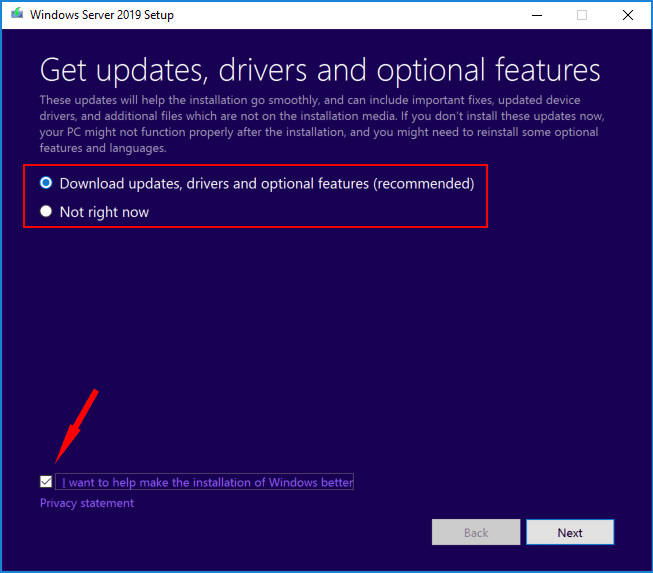
Next, you will be prompted to enter a product key for Windows Server 2019. You will not be able to proceed with the upgrade until you enter a product key.
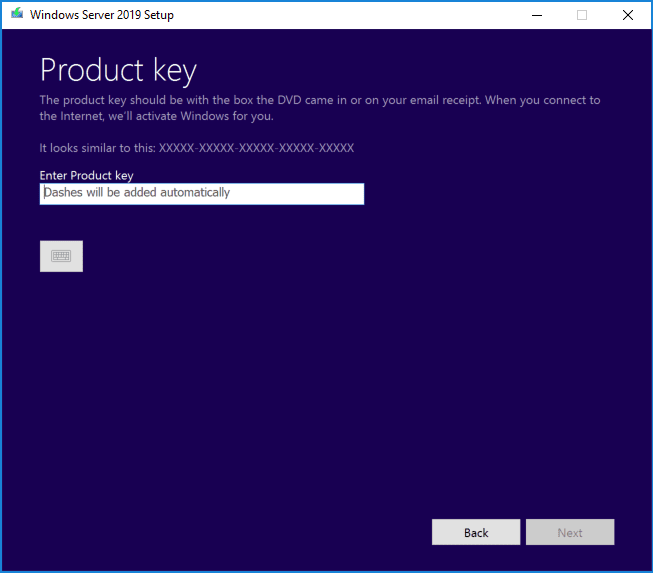
The upgrade will recognize the variant of legacy OS you are coming from and present the correct option for upgrade. Since I am coming from Windows Server 2016 Datacenter, these are the options that are presented. Here I am choosing the Desktop Experience version to install the GUI.
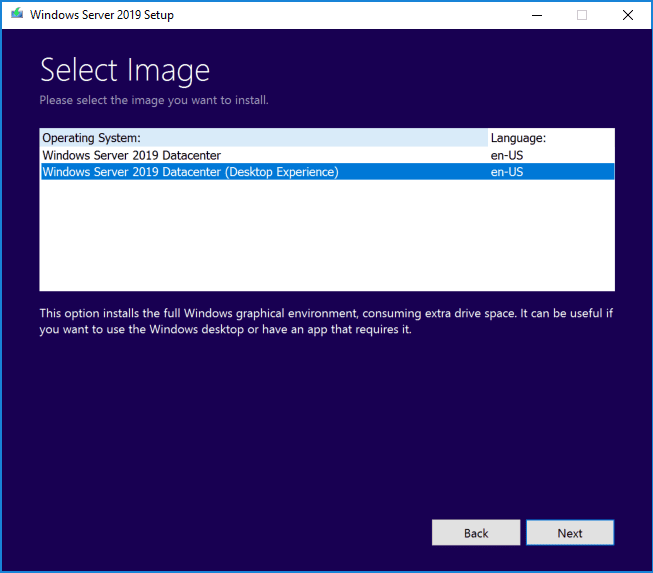
The next screen is the typical EULA and notices from Microsoft.
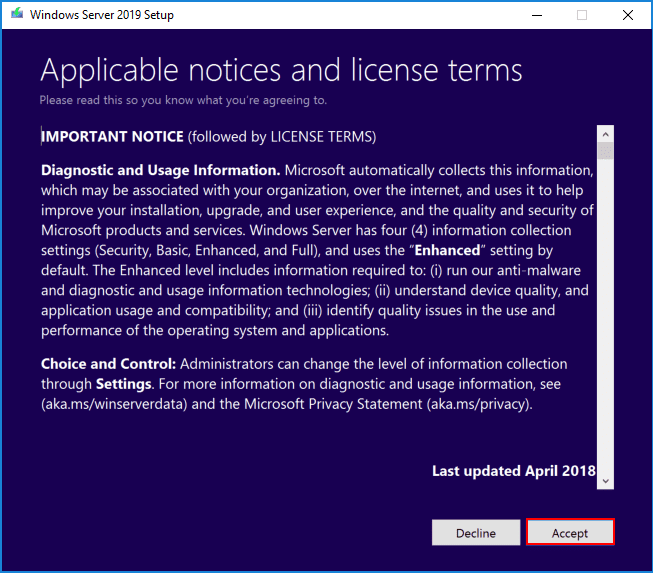
You can choose what you want to keep with the user profile(s) during the upgrade. You can choose to keep all user profile files or not keep anything.
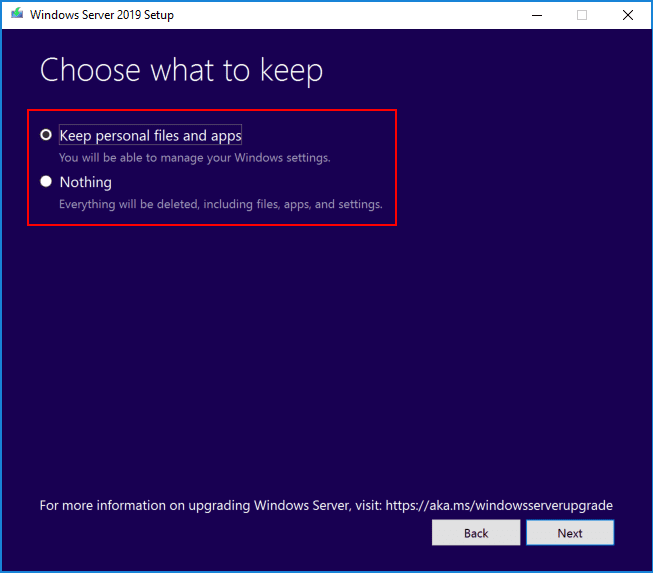
After clicking Next, you will see the upgrade process start checking for updates as we directed it to do with the configuration options.
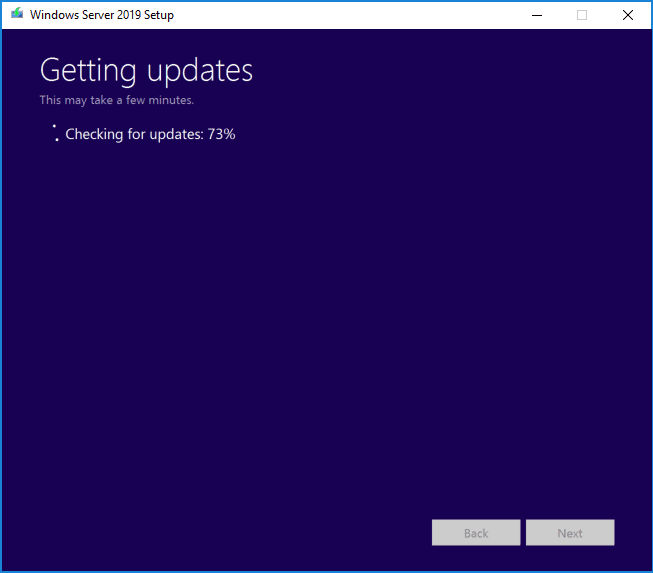
Since this is a domain controller, the upgrader will recognize whether or not the Forestprep and Domainprep processes have been ran on the domain. Below, is the domain prep screen, however, forestprep will come first.
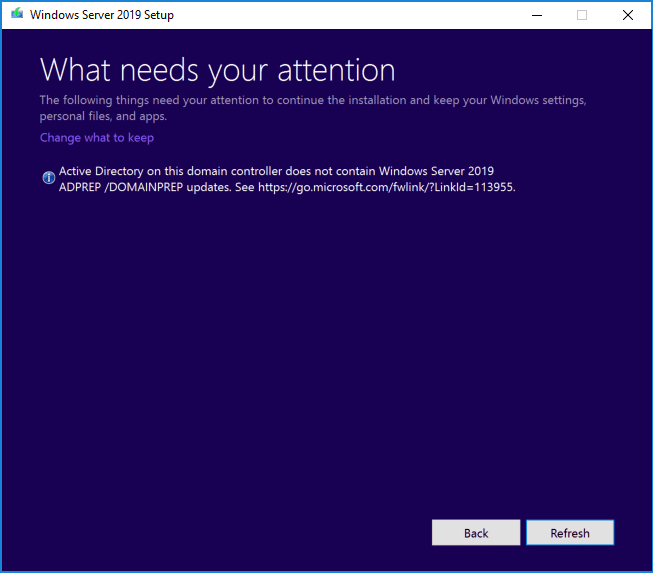
The process to run the forestprep and domainprep processes is the same as in previous generations. Simply navigate to the Supportadprep folder on the installation media and run the adprep utility with the appropriate switches. First, run forestprep, and then domainprep.
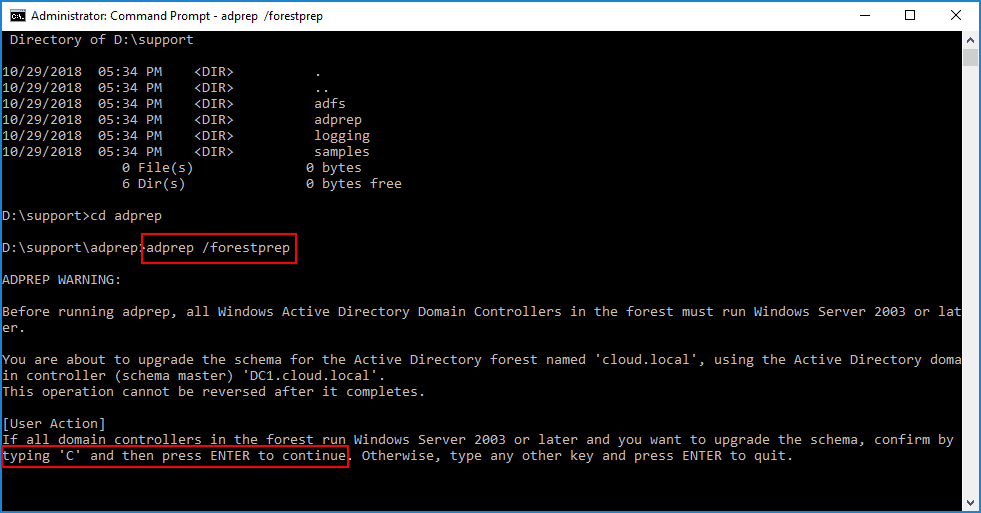
As mentioned, there is only one schema file that is extracted and applied. You should see the forestprep process complete successfully.
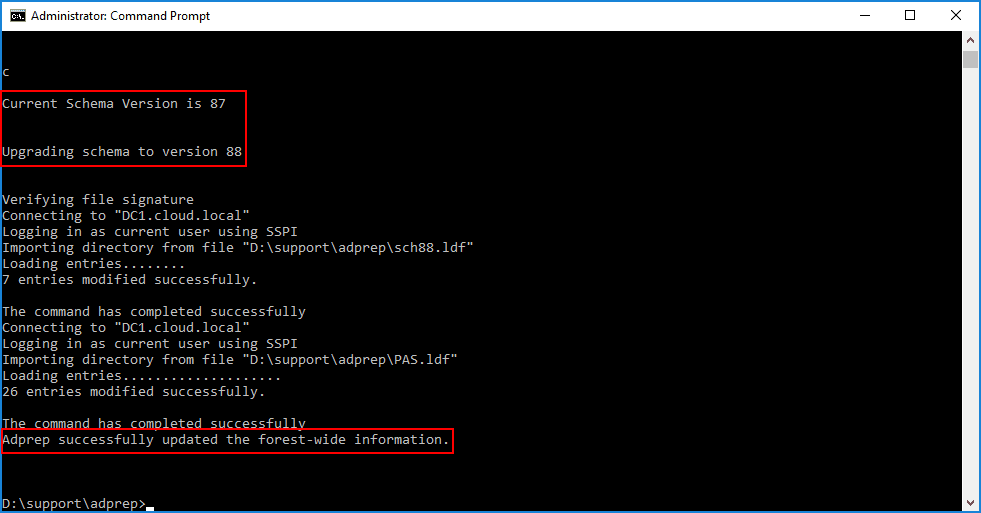
Next, we apply the domainprep process. This only takes a second and you will see the adprep successfully updated the domain-wide information message.
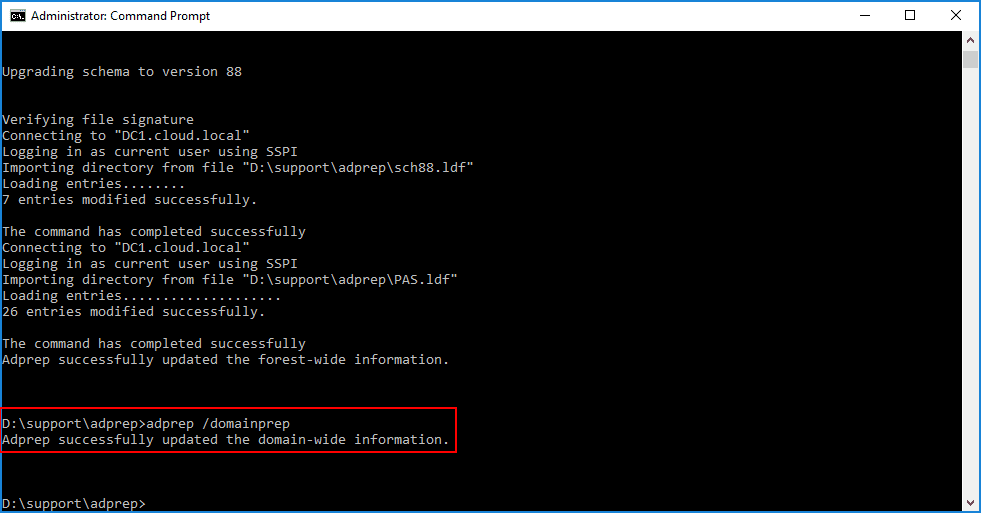
Now, the actual upgrade process is ready to run using the configuration selected earlier in the upgrade wizard.
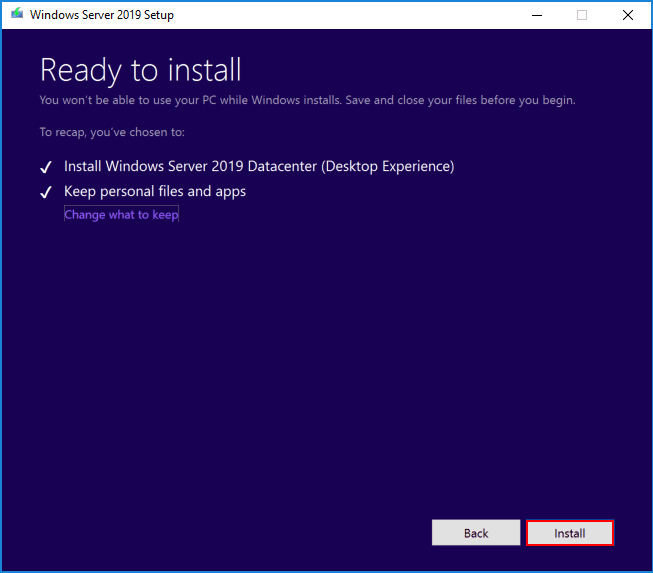
After clicking Next, you will see the Installing Windows Server 2019 splash screen appear.

As noted in the screen above, the process will reboot the server several times to complete the upgrade. You will see the familiar Working on updates displayed with a percentage as the process works through.

After a while, you will be able to login to the Windows Server 2019 domain controller that is now upgraded. A quick winver command should display Windows Server 2019, version 1809 (OS Build 17763.107) at the time of this writing and ISO version.
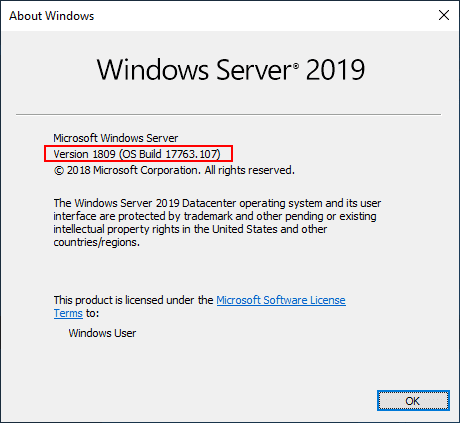
Takeaways
The process of Upgrading Windows Server 2016 Domain Controller DC to Windows Server 2019 is very straightforward. In fact the process aside from running forestprep and domainprep is basically brain dead work with the wizardized experience. Interestingly, outside of simply having the latest and greatest Windows Server operating system, there is apparently not much reason to upgrade to Windows Server 2019 from an Active Directory standpoint. There are basically no new features outside of a new Exchange Online attribute that has been added. For on-premises deployments, this may not be enough of a reason to upgrade. Additionally, it is interesting that with Windows Server 2019, there is no new Forest functional level to be had. Windows Server 2016 is still the latest and greatest in functional level for the forest and domain. More home lab fun to come. Stay tuned.




